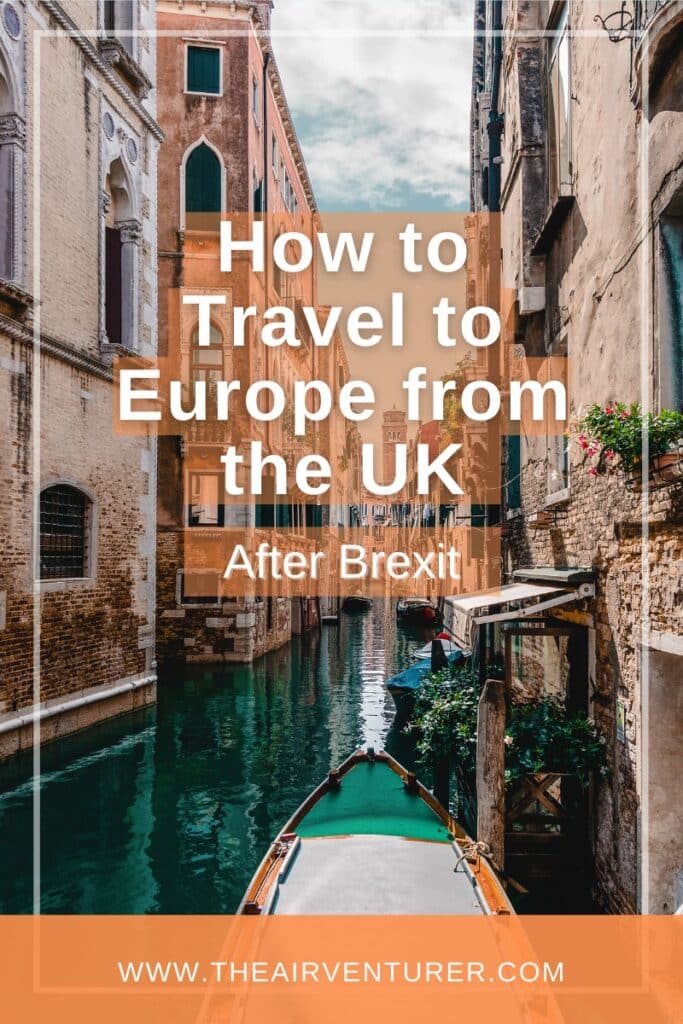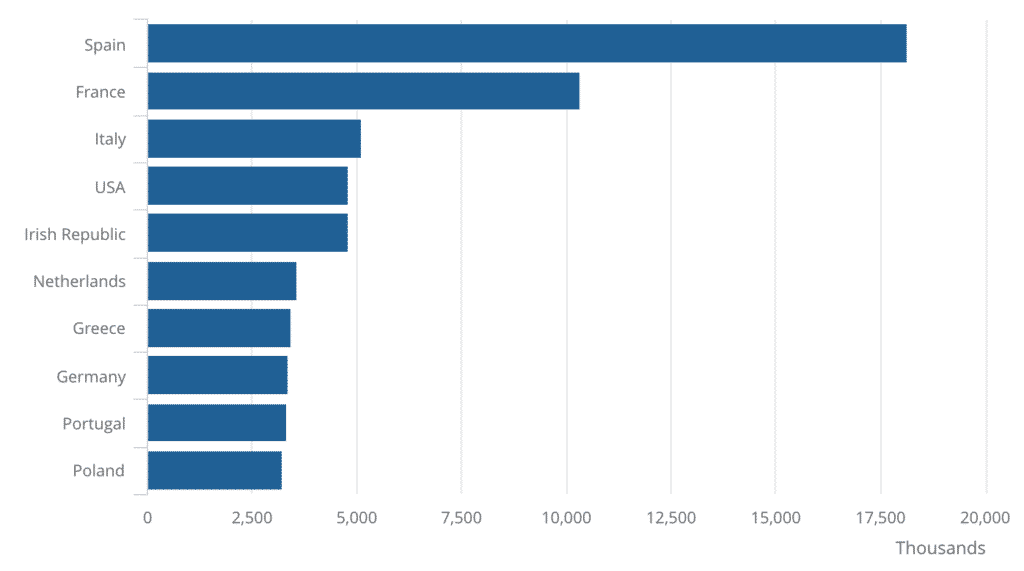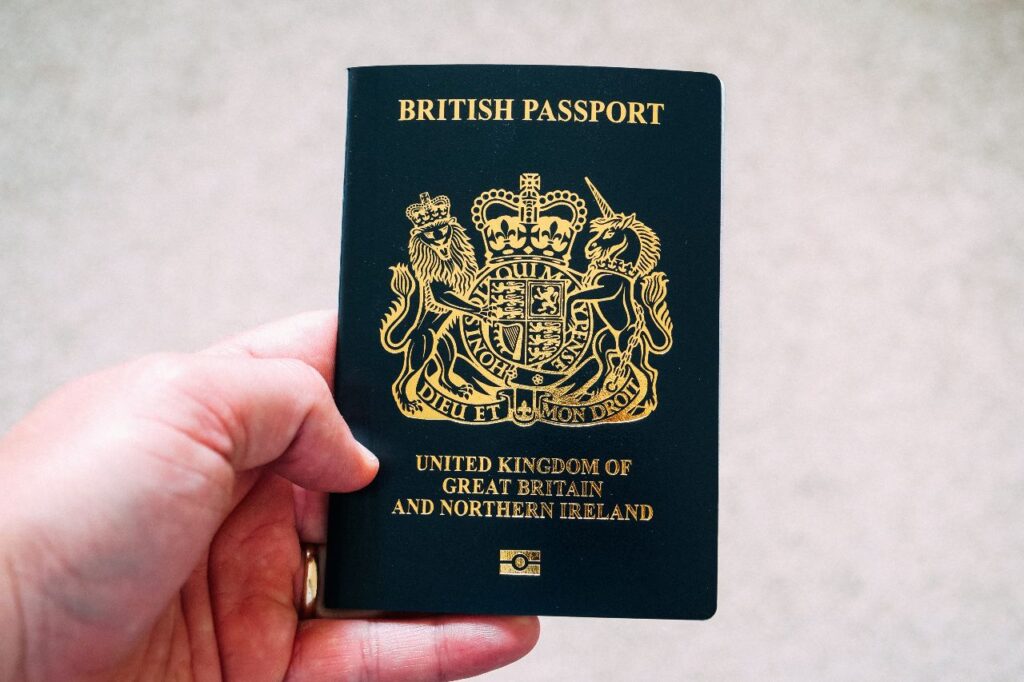Brexit changed the way British citizens travel to Europe
Introduction
After a difficult 2020 we’re all eager to travel more, reconnect with those we love and the World around us.
I can’t wait to jump on a train or a plane and get lost on the streets of a city I’ve never seen before, meet new people and discover new cultures.

This year though, together with hope for better days we get new rules for travel between Europe and the UK.
Don’t worry, travel will still be amazing and I’ll help you understand all the changes so you can plan the perfect journey.
In this article we’re going to focus on traveling from the UK to EU countries after Brexit and what rules apply for British citizens.
To learn about visiting the UK as an EU, EEA or Swiss citizen see my article on How To Travel To The UK from Europe after Brexit.
Why it is important
The leading travel destination for UK residents is Europe therefore it is only normal for people to be concerned about Brexit and what changes it brings.
According to the ONS, in 2019 Spain has been the most popular destination for UK residents followed by France and Italy.
Granted, not all these trips were made by British citizens but the numbers make it easy for us to understand how many people might be concerned by Brexit.

Source: Office for National Statistics – International Passenger Survey
We can deduct that Europe is by far the main destination for British citizens so it’s important for us to know what the impacts are and be prepared.
Compliance questionnaire
If you’re a British Citizen planning to fly to any EU country, Iceland, Norway, Switzerland or Liechtenstein then ask yourself the following questions:
How long are you planning to stay for?
- You don’t need a visa if you only plan to stay for a maximum 90 days in any 180-days interval.
- If you travel to Bulgaria, Croatia, Cyprus or Romania the time spent in any of these countries does not affect your 90-days allowance for the other EU members. However the 90-day rule applies to them as well.
Does your passport comply with the new rules?
- It needs to have at least 6 months left;
- Be less than 10 years old even if it has 6 months or more left;
- If you travel to Ireland, the rules above do not apply.

Do you have a valid health insurance?
- If you have an European Health Insurance Card (EHIC) issued before the end of 2020, you will still be able to use it until its expiry date.
- As part of the UK / EU deal all UK residents can now apply for a Global Health Insurance Card (GHIC). The application is free of charge on the official website.
- If you travel to Norway you can use your UK passport to get emergency medical treatment or to treat a pre-existing condition.
Do you know the border procedures?
- When you enter one of the EU countries you may be asked to show a return or connecting ticket.
- You may be asked to show you have enough money for your stay.
- You may have to use separate lanes from EU citizens and crossing the border may take longer.
Are you planning to take your pet with you?
- Your existing pet passport is no longer valid.
- You will have to obtain an Animal Health Certificate (AHC) for your pet.
- Your pet will need to be microchipped and vaccinated against rabies.
- Contact your vet at least one month in advance to make sure you have enough time.
- The gov.uk website contains more details in the taking your pet abroad section.
Will you have to pay roaming charges?
- From the 1st of January 2021 the rules on roaming have changed.
- Free mobile roaming is no longer guaranteed.
- Check with your phone operator before you travel to understand if you will face any roaming charges while traveling in the EU, Iceland, Liechtenstein or Norway.
Driving to the EU after Brexit
When you plan to drive to one of the EU countries please also make sure you review the following points as well:
- If you will be driving your own car in Europe, you will have to carry a Green Card for your insurance. You will obtain this from your insurance provider and you may have to pay a fee. Always have the physical Green Card with you, showing it on your phone will not be accepted.
- Make sure you have your vehicle log book (V5C) with you.
- You will need to place a GB sticker on your car.
- If you have a paper driving licence or your licence was issued in Gibraltar, Guernsey, Jersey or the Isle of Man you may need an International Driving Permit (IDP) to drive in some EU countries and Norway.
- Check with the Embassy of the country you are planning to travel to.

Rules for taking food into the EU
From 1st January 2021 you are not allowed to travel into the EU with meat, milk or products that contain them.
There are a few exceptions from this rule. You can take certain amounts of powdered infant milk, infant food or pet food if it’s required for medical reasons and weighing less than 2 kilograms and:
- These products do not require refrigeration before opening;
- They are packaged proprietary brand products destined for sale to the final consumer, and
- The package is unbroken unless in current use.
For more detailed information regarding foods you can take into EU countries, including fishery products and other animal products please check the updates on the European Commission website.
Business travel
The actions I’ve mentioned above apply to all the travellers but there are a few extra requirements for business travellers.
- If you’re traveling to the EU, Switzerland, Iceland, Norway or Lichtenstein for less than 90 days in a 180-day period, you will not need a visa or work permit for some simple activities such as participating in a business meeting, a trade show or conference.
- If you’re planning to stay for longer than 90 days in a 180-days period you may need a visa or a work permit.
- You will also need a visa, work permit or other local documentation if you’re transferring from the UK branch of a company to a branch in a different country even for a short period of time.
- If you’re going to provide services to a customer in a country where your employer has no presence or if you’re providing services in another country as a self-employed person, then you may also need a visa or work permit.

Conclusion
There is no reason to be concerned or anxious about the changes Brexit brings for travel. We just have to plan a bit better and be prepared.
If you are a British citizen and are planning to visit Europe please make sure you review the new rules and comply. This will remove any anxiety you might have regarding Brexit.
Travelers seeking to discover new places and experience different cultures will still be able to do so with ease.
Although the queues or procedures upon arrival might take a bit longer, travel still is the best thing you can do to grow and bring meaning to the World around you.
What to read next
- How To Travel to the UK From Europe after Brexit
- What Is Ethical Travel and How To Be an Ethical Tourist
- How to Choose a Frequent Flyer Programme
- Covid-19 Safer Travel Guide
Do you have any further questions regarding How to Travel to Europe from the UK after Brexit? If so, please drop them as a comment below.
Do please share this post if you found it useful and remember to always seek personal growth by exploring the World responsibly.









Thanks for this, very comprehensive list! You’re right, travel will still be amazing. Can’t wait to get exploring again!
Thank you Cedric!